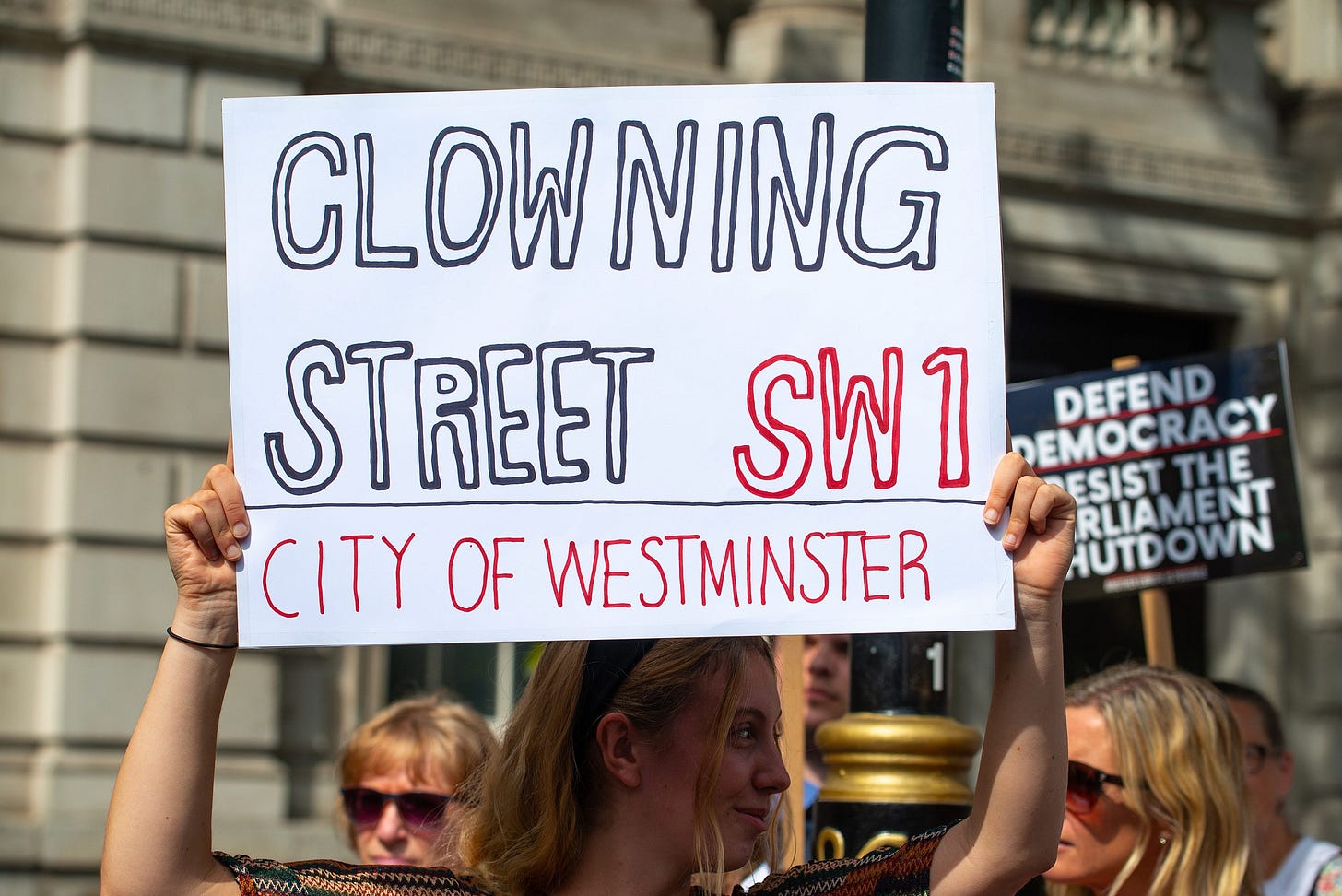Negative Exceptionalism & UK Value

Clowntime is over, Almost too good to be true. Elvis Costello, Get Happy, 1980.
Clowntime is Over – This time next year, the UK will probably have a Labour government for the first time in fourteen years. As UK taxpayers, citizens, employers and employees, we each have our view on this prospect. However, from a global investor’s perspective, the event will likely be seen as an example of smooth and effective governance, compared with the Downing Street clown car capers of 2022 or even next year’s national elections due in Taiwan, India, Mexico and the United States.
Get Elected – Any incoming administration faces challenges and policy options. Argentina’s newly elected Javier Milei must tackle 143% inflation and a currency in freefall amid early signs that he is reigning back on some of his bolder policy prescriptions as his rhetoric makes contact with reality. In the UK, the Labour leadership is positioning itself as trustworthy in the eyes of voters and investors. Last week at the Aquis Stock Exchange event, the keynote speech was from Labour’s Shadow Secretary to the Treasury, the pocket-sized Tulip Saddiq. Her policy comments, while limited, were pro-business and supportive of the work of the City of London and echoed Keir Starmer’s plea for Britain’s Thatcherites to back him in his Sunday Telegraph article.
In the Pack – The policy choices facing an incoming Labour government will be familiar to other G7 leaders. The UK’s economic and financial position will be better than some and worse than others. UK consumers now face increasing real incomes. House prices have risen for the last three months. Following the ONS upgrade to our post-Brexit GDP series, the UK falls squarely into the middle of the G7 pack for economic growth and ahead of most over the post-pandemic period.
Naughty Step – Comparisons of the UK economy to that of Argentina that Mark Carney made look increasingly out of touch with reality. However, the comments of the former Bank of England Governor, Goldman’s partner, and now Chair of Canadian investment giant Brookfield reflect the widely held belief among global investors that the UK should remain on the investment naughty step.
Why the UK? – Straws in the wind suggest that things are changing. Nissan, previously a critic of the UK’s decision to leave the EU, announced a $2bn investment in its Sunderland operations to underpin its bridgehead into the European market. CEO Makoto Uchida said he was baffled at how the British talk the country down: “I am quite surprised that people here in the UK are asking, ‘Why the UK?’ We have great people and great talent here.” Meanwhile, US FMCG giant Mars has agreed to pay £534m to acquire UK-listed Hotel Chocolat, paying an astonishing 170% premium to the value afforded by beleaguered UK stock market investors immediately prior.
Not Exceptional – De-globalisation, out-of-control monetary policy and fiscally dominant governments, with their overarching demand for debt, have created havoc among the world’s capital markets. But the uncomfortable truth for the doom-mongers and global investors is that the UK market is not uniquely poorly positioned to face these challenges. However, our stock market is priced as if it is.
Hiding in Plain Sight – Panmure economist and Times columnist Simon French has been covering the relative value of the UK stock market for nearly a decade, and he is more convinced than ever that the UK anomaly is evident, widely acknowledged but hiding in plain sight. Even after adjusting for sector composition and the comparatively high value of US equities, the UK remains 19% cheaper than developed world markets. The lack of specific capital market policy initiatives with the recent Autumn Statement means this anomaly remains latent.
Negatively Exceptional – Last year, as the clown cars were in Downing Street and forecasts of UK inflation surpassed 13%, Saxo Bank’s head of macro analysis, Christopher Dembik, said the UK is “more and more looking like an emerging market.” Peter Kuznets’s point was spot on when he quipped that “there are four types of economies, developed, developing, Japan and Argentina,” but was aimed at Argentina’s enduring negative exceptionalism. The UK doesn’t face the policy choices, reform agenda, and risks Javier Melei must now contemplate. Indeed, the UK’s imminent handover of political power will be uneventful in comparison to most. Meanwhile, the UK stock market remains priced as if its negative exceptionalism has endured, making it attractively valued.
Jeremy
The post Negative Exceptionalism & UK Value appeared first on Progressive.



